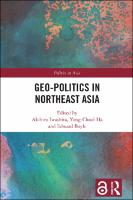O Império e a Constituição Colonial Portuguesa
Editorial: Taylor & Francis
Licencia: Creative Commons (by-nc-nd)
Autor(es): Iwashita, Akihiro
Ha, Yong-Chool
Boyle, Edward
Only in the twentieth century did the (so-called) Portuguese colonial constitution, in the material and formal sense, emerge. Only then the Empire and the Portuguese colonial law, as an exercise of power, were politically theorized. This book addresses that colonial constitution, in force in the eight colonies that, in the Third Portuguese Empire, formed a unique and homogeneous totality. The main issues of the colonial constitution were two: the organization of the colonial power and the status of indigenous people. Regulating domination and submission, the majority of colonial (overseas) law had not the formal or rigidity of constitutional law, but was dispersed in the common legislation, mostly administrative. In the analysis of this colonial constitution, this book reveals four great periods that have succeeded since the First Republic to the Decolonization Act of 1974.
Só no século XX surgiu a (chamada) constituição colonial portuguesa, em sentido material e formal. Também só então o Império e o direito colonial português, enquanto exercício de poder, obedeceram a teorização política. Este livro aborda essa constituição colonial, vigente nas oito colónias que, no Terceiro Império português, formavam um todo único e homogéneo. As suas matérias fundamentais eram duas: a organização do poder colonial e o estatuto dos indígenas. Regulando dominação e submissão, larga parte do direito colonial (ultramarino) não tinha carácter formal ou rigidez de lei constitucional, antes estava na legislação ordinária, sobretudo administrativa. Na análise desta constituição colonial, este livro descortina quatro grandes períodos que se sucederam desde a Primeira República à Lei da Descolonização de 1974.
Compartir:
Una vez que el usuario haya visto al menos un documento, este fragmento será visible.


